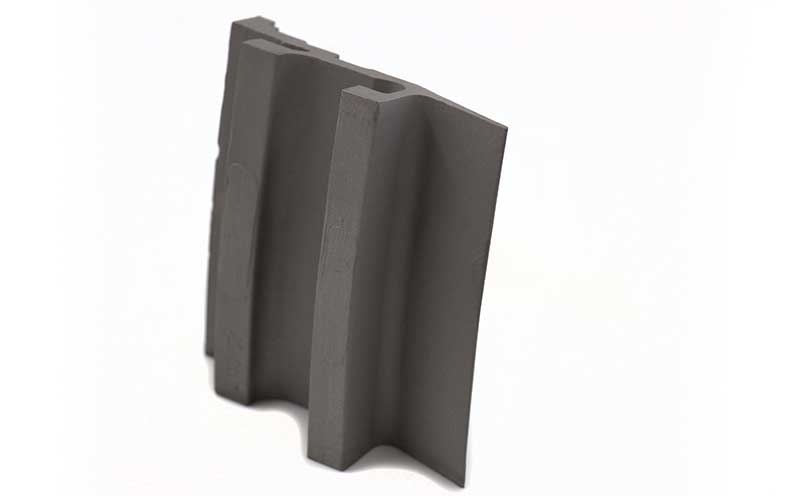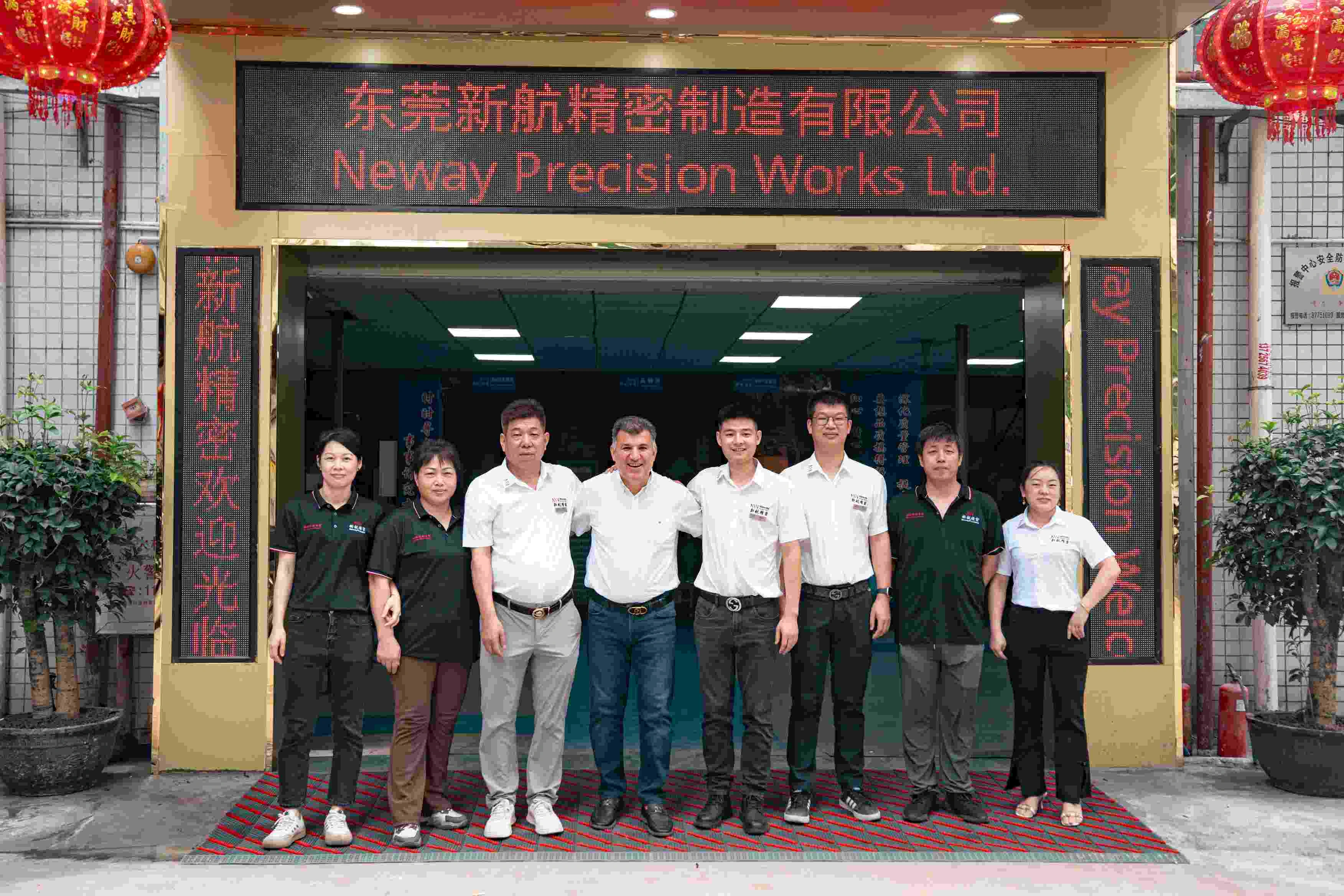Rene Superalloy Custom Parts: Custom Precision Forging Fabrication Services
Introduction
Rene superalloys are designed for superior high-temperature strength, creep resistance, and oxidation stability, making them essential for critical aerospace, turbine, and energy sector applications. At Neway AeroTech, we provide custom precision forging services for Rene alloys, delivering high-performance custom parts with dimensional tolerances of ±0.05 mm and optimized grain structures for extreme operating environments.
Utilizing advanced forging, heat treatment, and quality assurance technologies, we guarantee custom Rene parts with exceptional durability, fatigue resistance, and thermal stability for the most demanding conditions.
Core Manufacturing Challenges for Rene Superalloy Components
Forging Rene alloys such as Rene 95, Rene N5, and Rene 88 presents significant technical challenges:
Extremely high strength and creep resistance requiring specialized forging equipment and precise thermal control.
Maintaining tight dimensional tolerances (±0.05 mm) for complex custom geometries.
Achieving controlled grain refinement to enhance fatigue resistance and thermal stability.
Managing microsegregation and minimizing residual stresses during forging and cooling.
Precision Forging Process for Rene Custom Parts
The precision forging process for Rene superalloy custom parts involves:
Billet Preparation: Homogenization heat treatment of Rene billets to achieve uniform microstructure prior to forging.
Precision Die Forging: Forging at elevated temperatures (1120–1170°C) under controlled strain rates to optimize grain size and shape.
Isothermal Forging (for critical parts): Fine control of die and material temperatures to maintain uniform deformation and minimize defects.
Controlled Cooling: Furnace cooling or air cooling tailored to minimize residual stress and ensure mechanical integrity.
Post-Forging Heat Treatment: Solution treatment at 1175–1205°C followed by aging treatments to achieve target mechanical properties.
Final CNC Machining: High-precision machining for final dimensions (±0.01 mm) and achieving surface finishes Ra ≤1.6 µm.
Comparison of Manufacturing Methods for Rene Superalloy Parts
Manufacturing Method | Dimensional Accuracy | Surface Finish (Ra) | Microstructure Control | High-Temperature Performance | Cost Efficiency |
|---|---|---|---|---|---|
Precision Forging | ±0.05 mm | ≤3.2 µm | Excellent | Superior | Medium |
Vacuum Investment Casting | ±0.1 mm | ≤3.2 µm | Good | Good | Medium |
CNC Machining (from Solid) | ±0.01 mm | ≤0.8 µm | Limited | Moderate | High |
Manufacturing Method Selection Strategy
Choosing the right process for Rene custom parts depends on performance, cost, and complexity:
Precision Forging: Preferred for mission-critical aerospace and turbine components requiring optimized fatigue resistance, creep strength, and tight tolerances (±0.05 mm). Forged Rene parts show up to 30–40% better fatigue life than cast alternatives.
Vacuum Investment Casting: Suitable for parts with complex geometries that are difficult to forge, offering good high-temperature performance and reasonable precision.
CNC Machining (from Solid): Ideal for prototypes and low-volume production runs demanding ultra-precise tolerances (±0.01 mm), though less efficient for high-strength Rene alloys due to tool wear and machining difficulty.
Rene Alloy Performance Matrix
Alloy Material | Max Service Temp (°C) | Tensile Strength (MPa) | Creep Resistance | Oxidation Resistance | Typical Applications |
|---|---|---|---|---|---|
760 | 1400 | Excellent | Good | Aerospace discs, turbine blades | |
1150 | 1150 | Superior | Superior | Single-crystal turbine blades | |
980 | 1350 | Excellent | Good | Turbine discs, aerospace components | |
870 | 1240 | Good | Good | High-temperature aerospace parts | |
1050 | 1200 | Superior | Superior | Turbine nozzles, blades | |
1050 | 1250 | Superior | Superior | Advanced hot-section components |
Alloy Selection Strategy for Rene Custom Parts
Selection strategies based on performance needs:
Rene 95: Selected for aerospace discs and turbine blades demanding high tensile strength (1400 MPa) and excellent fatigue life up to 760°C.
Rene N5: Ideal for single-crystal turbine blades operating at temperatures up to 1150°C with minimal creep deformation and superior oxidation resistance.
Rene 88: Preferred for forged turbine discs requiring high strength (1350 MPa) and good creep performance at service temperatures near 980°C.
Rene 41: Suitable for aerospace structural parts exposed to moderate-to-high temperatures (870°C) where good tensile and oxidation resistance are necessary.
Rene 80: Best for complex turbine nozzles and blades requiring superior creep resistance and stability at elevated temperatures (~1050°C).
Rene 108: Used for hot-section components in turbines needing excellent high-temperature strength and oxidation protection.
Key Post-processing Techniques
Essential post-processing for Rene custom parts:
Hot Isostatic Pressing (HIP): Eliminates internal porosity, improving density and fatigue performance.
Precision CNC Machining: Final finishing to achieve ±0.01 mm tolerances and surface finishes Ra ≤0.8 µm.
Heat Treatment: Tailored solution and aging cycles to enhance tensile, creep, and fatigue properties.
Surface Finishing: Polishing and protective coating application for improved corrosion resistance and surface durability.
Testing Methods and Quality Assurance
Neway AeroTech guarantees the highest quality through:
Coordinate Measuring Machine (CMM): Dimensional verification within ±0.005 mm.
X-ray Non-destructive Testing: Identification of internal porosity and structural anomalies.
Metallographic Microscopy: Evaluation of grain structure and phase distribution.
Tensile Testing: Verification of mechanical strength parameters.
All parts are produced under AS9100-certified aerospace quality standards.
Case Study: Custom Forged Rene 88 Turbine Discs
Neway AeroTech delivered custom Rene 88 turbine discs for a leading aerospace OEM, achieving:
Service Temperature: Continuous use up to 980°C
Dimensional Tolerance: ±0.03 mm maintained
Fatigue Strength: Increased by 40% after HIP and aging treatment
Certification: Full AS9100 compliance
FAQs
What Rene alloy grades do you offer for custom precision forging?
How do you ensure dimensional accuracy and grain control in Rene forged parts?
What post-processing techniques improve Rene superalloy mechanical properties?
How do forged Rene parts perform compared to cast parts?
What quality standards do your Rene forged components comply with?

